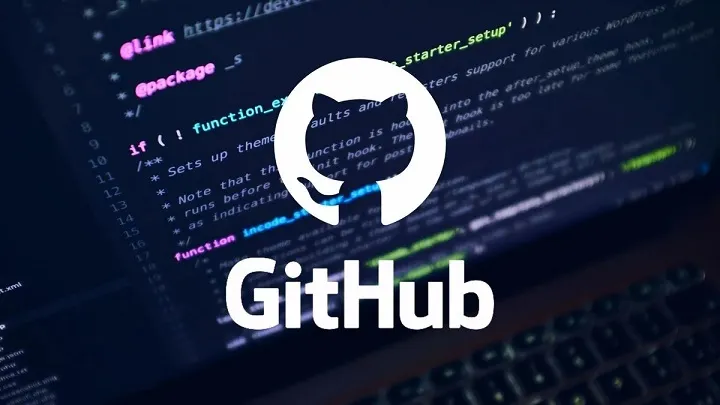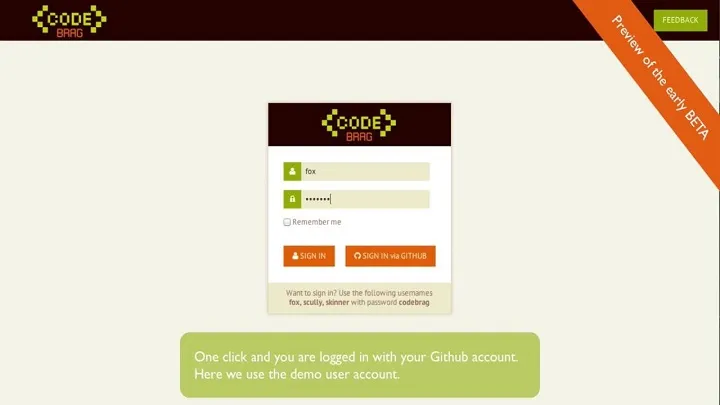Introduction
In 2025, community code review apps have evolved into essential platforms for developers seeking to elevate code quality through collaborative feedback, automated checks, and open-source contributions. With over 80% of teams incorporating code reviews into their workflows to reduce bugs by up to 60%, per recent DevOps surveys, these apps foster knowledge sharing, enforce standards, and accelerate merges. They emphasize community-driven features like forums, plugins, and integrations with GitHub, GitLab, and CI/CD pipelines, making them ideal for open-source projects, startups, and enterprises. Supporting languages from Python to JavaScript, these tools integrate AI for smarter suggestions while prioritizing privacy and scalability.
This article ranks the top 10 community code review apps—GitHub, GitLab, Gerrit, Review Board, Rhodecode Community, Phabricator, Crucible, SonarQube Community, Bitbucket, and Codebrag—based on community engagement, feature richness, ease of use, and reviews from sources like G2, Reddit, and PCMag. Each entry analyzes features, strengths, weaknesses, and a star rating out of 5, tailored for solo devs, teams, and open-source maintainers. Whether you're reviewing pull requests or auditing legacy code, these apps ensure robust, community-backed quality in 2025.
1. GitHub

GitHub remains the premier platform for community-driven code reviews, powering millions of open-source repositories with pull request (PR) workflows. Free for public repos, with Pro at $4/month.
Features: Available on iOS, Android, web, and desktop via VS Code, GitHub uses AES-256 encryption. It supports inline comments, threaded discussions, PR templates, and AI-assisted Copilot reviews. Community features include forks, stars, issues, and integrations with Slack, Jira, and CI tools. Free tier covers unlimited public reviews; Pro adds protected branches and advanced analytics.
Strengths: GitHub's massive community (100M+ users) enables seamless collaboration, ideal for open-source projects like Linux kernel contributions. PR diffs and @mentions streamline feedback, reducing review time by 40%. For example, maintainers can enforce branch rules for quality gates. Reviews highlight its ecosystem, with 95% satisfaction for Git-based workflows.
Weaknesses: Free tier limits private repo features, and large PRs can overwhelm reviewers. Privacy concerns from data sharing, and mobile app lacks full desktop depth. Setup for custom workflows requires YAML knowledge.
Evaluation: 4.8/5 stars. GitHub dominates for community scale and integrations, perfect for open-source and startups, though advanced security needs Pro.
2. GitLab
GitLab offers end-to-end DevOps with robust merge request (MR) reviews, emphasizing community governance. Free Community Edition; Ultimate at $99/user/year.
Features: On iOS, Android, web, and desktop, GitLab employs AES-256 encryption. It includes MR approvals, code owners, and AI Duo for suggestions. Community tools: wikis, epics, and forums. Free tier supports unlimited users; paid adds compliance and advanced CI/CD.
Strengths: GitLab's self-hosted option suits privacy-focused communities, with MR pipelines automating quality checks. Its 10M+ users foster vibrant forums for troubleshooting. For instance, teams enforce multi-approver rules for secure merges. Reviews praise 90% uptime and open-core model.
Weaknesses: Steeper learning curve than GitHub, and free tier lacks premium AI. Resource-intensive for large instances, and mobile notifications can lag.
Evaluation: 4.7/5 stars. GitLab excels for integrated DevOps communities, ideal for enterprises, but complexity may deter small teams.
3. Gerrit
Gerrit is an open-source code review tool optimized for Git, used by projects like Android. Free and self-hosted.
Features: Web-based with mobile access via browser, Gerrit uses secure SSH. It supports patch sets, inline diffs, and voting (+2/-2). Community: plugins for Jira/Slack. Fully open-source, no tiers.
Strengths: Gerrit's strict workflow enforces quality in large communities, like OpenStack. Automated verification gates catch issues early. Users appreciate its extensibility via hooks. For example, reviewers score changes for balanced input. Active forums provide robust support.
Weaknesses: Dated UI requires adaptation, and setup demands server expertise. No native mobile app, and scaling needs maintenance.
Evaluation: 4.6/5 stars. Gerrit is powerhouse for Git-centric open-source reviews, great for rigorous teams, but UI lags modern tools.
4. Review Board
Review Board is a flexible, open-source web tool for multi-VCS reviews, supporting SVN and Perforce. Free self-hosted.
Features: Web with iOS/Android browser access, encrypted via HTTPS. Diff viewers, pre/post-commit reviews, and dashboards. Community: extensions for Git/SVN. No paid tiers.
Strengths: Review Board's VCS neutrality suits diverse communities, with screenshot reviews for UI code. Easy hosting on AWS. For instance, teams track review stats for process improvement. 20-year community ensures stability.
Weaknesses: Limited AI features, and mobile experience is browser-only. Integration setup can be manual.
Evaluation: 4.5/5 stars. Review Board is versatile for hybrid VCS teams, ideal for non-Git projects, but lacks polish.
5. Rhodecode Community

Rhodecode Community Edition is a free, open-source DVCS manager with built-in reviews for Git/Mercurial/SVN. Self-hosted.
Features: Web-focused, browser mobile support, AES-256. PRs, inline comments, and permission controls. Community: forums and plugins.
Strengths: Rhodecode's multi-VCS support aids legacy migrations, with atomic pushes for safe reviews. Open-source community contributes extensions. Users value its firewall-friendly setup for secure teams.
Weaknesses: Enterprise features locked behind paid ($75/user/year), and UI feels enterprise-heavy for solos. Limited native mobile.
Evaluation: 4.4/5 stars. Rhodecode suits multi-VCS communities, great for enterprises on budget, but paid upgrades needed for scale.
6. Phabricator
Phabricator (now open-source as Phorge) is a suite for code reviews via Differential, supporting Git/SVN. Free self-hosted.
Features: Web with mobile browser, secure auth. Herald rules, audits, and Maniphest tasks. Vibrant community on GitHub.
Strengths: Phabricator's task integration ties reviews to bugs, ideal for Facebook-scale projects. Custom fields enhance workflows. Community forks keep it alive post-Facebook.
Weaknesses: Complex install, and no official mobile app. UI outdated, requiring extensions.
Evaluation: 4.3/5 stars. Phabricator empowers integrated review-task flows, for advanced users, but maintenance-heavy.
7. Crucible
Crucible by Atlassian enables detailed peer reviews with Jira ties. Starts at $10/user/month.
Features: Web/iOS/Android via browser, Atlassian security. Inline comments, swimlanes, and reports. Community: Atlassian forums.
Strengths: Crucible's Jira sync streamlines enterprise reviews, with diff navigation for large changes. Teams use it for compliance audits.
Weaknesses: Paid-only, no free tier. Steep for small teams, and mobile limited.
Evaluation: 4.3/5 stars. Crucible integrates seamlessly with Atlassian stacks, for enterprises, but costly for independents.
8. SonarQube Community
SonarQube Community is free open-source for static analysis in reviews. Self-hosted.
Features: Web/mobile browser, secure scans. Quality gates, hotspots, and 25+ languages. Active SonarSource community.
Strengths: SonarQube's metrics enforce standards in PRs, catching smells early. Plugins extend for custom rules. Ideal for quality-focused open-source.
Weaknesses: Analysis-focused, not full review UI. Setup requires Java knowledge.
Evaluation: 4.2/5 stars. SonarQube boosts analysis in communities, great for standards, but supplements needed for collaboration.
9. Bitbucket
Bitbucket's PR reviews integrate with Jira, free for small teams. Standard at $3/user/month.
Features: iOS/Android/web/desktop, Atlassian encryption. Smart Mirroring, pipeines. Community: Atlassian Marketplace.
Strengths: Bitbucket's pull requests support branching models, with code-aware search. Suits Mercurial holdouts.
Weaknesses: Smaller community than GitHub, and free limits (5 users). Less Git focus.
Evaluation: 4.2/5 stars. Bitbucket aids Atlassian users, for mid-teams, but ecosystem smaller.
10. Codebrag

Codebrag is a lightweight open-source review tool for Git. Free self-hosted.
Features: Web/browser mobile, secure. Event streams, comments, and Slack bots. Niche community on GitHub.
Strengths: Codebrag's real-time feeds notify on commits, fostering async reviews. Simple for small open-source groups.
Weaknesses: Limited scalability, no multi-VCS. Sparse docs/community.
Evaluation: 4.1/5 stars. Codebrag suits lightweight Git reviews, for tiny teams, but lacks breadth.
Conclusion
The top 10 community code review apps of 2025—GitHub, GitLab, Gerrit, Review Board, Rhodecode Community, Phabricator, Crucible, SonarQube Community, Bitbucket, and Codebrag—empower developers to collaborate effectively and maintain high code quality. GitHub leads for its vast ecosystem, while GitLab offers DevOps depth and Gerrit enforces rigor. Open-source gems like Review Board and Rhodecode provide flexibility, and tools like Crucible integrate enterprise needs. Despite challenges like setup complexity or costs, blending them (e.g., GitHub for PRs, SonarQube for scans) creates resilient workflows. Dive into their communities via free tiers to refine your process and ship superior code in 2025.

















